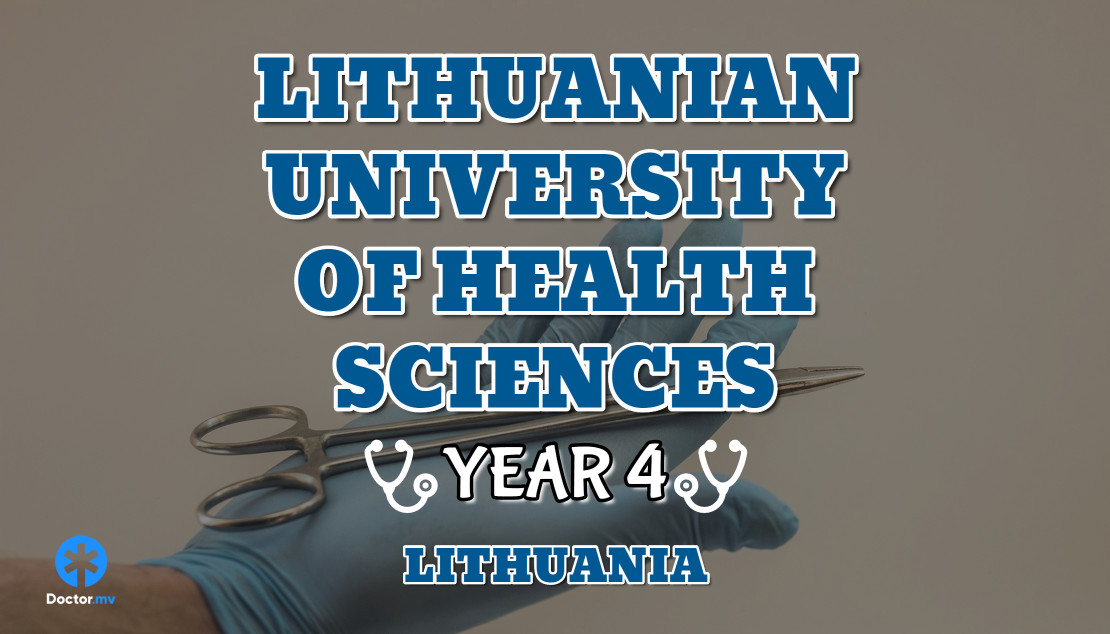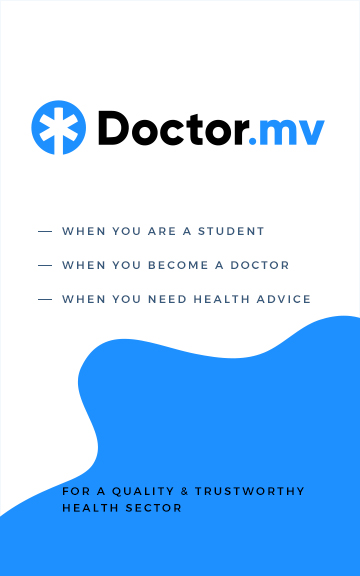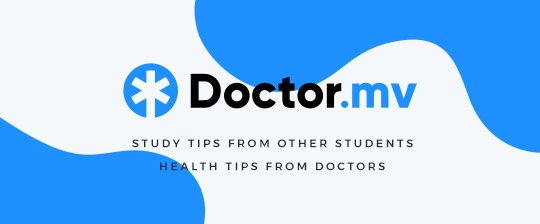I’m SAJUAN MUSHRIF and this is My Medical Student Life

Nabeel Ibrahim
Published on: 27/09/2018
Fourth Year Lithuanian University of Health Sciences Lithuania Mohamed Sajuan MushrifUniversity: Lithuanian University of Health Sciences (LSMU)
Current Year: Fourth
Medical Specialty Interested in: This is a bit of a hard question. Because everyone expects you to have a specialty, especially in the Fourth year. However, I don't think I have a current specialty in mind, because I believe you don't really have to have anything planned. You can go until Sixth year and keep your options open. If I had to give an answer it would be Sports Medicine.
Most Inspiring Person: My Mom - not because of her success, but her strength of character and all the lessons I learned from her.
Single Quality that defines a great Doctor: It does not depend on how smart you are or where you come from, but the willingness and dedication that you have for what you do is everything.
First of all, walk us through the step-by-step processes that you went through to get to where you are today?
For my Secondary school, I went to Billabong High International School which was the first International school in Male'. At that time, when I joined 7th grade, I was confused as to why I was there. I wondered why my parents made that decision to move me from a local school to a private one. However, it turned out to be one of the best decisions they made. It's not just because of the studies, because if you're a student that is willing to learn, it doesn't matter what school you go to. You can achieve what you want and it doesn't make you any better because of your school.
For me, going to Billabong gave me the perfect balance between studies and social. It also affected my personality and character, and I learned a lot of life lessons. The friends I made in Billabong are still some of my closest friends to this day. So overall, it was a very good experience
After I finished O'Levels, I joined CHSE. Everyone says that it's the cream of the crop that always goes to CHSE, but I think the reason everyone does so well there is because of the students there. I don't have a particular craze for CHSE, and I don't feel like it's that good of a school in terms of education. It's the student's effort that gets them the grades. It was still a nice experience to meet a lot of people there and I had a good time.
I started working as a Clinical Assistant at Senahiya Military Hospital after graduating from CHSE. I worked there for about 3 months. However, to anyone reading this, I would suggest to work in a hospital where there is more chance to observe and see how the tests and system works. IGMH and ADK Hospital would be a good choice. Especially, since you get a few months in between A'Levels and joining University, I think this is valuable time to work and see how things are done.
It was a hard process to find LSMU, especially because I was the first Maldivian student to come here. Basically, me and my parents found out all the universities in the world that was offering Medicine course in English. Afterwords, it was a huge procedure of elimination of the universities that weren't suitable to my standards, based on past student experience, health professionals and university credentials. The final process of elimination was the finances, since I was self-financed. I didn't want to take any loan and scholarships was usually available to South Asian countries. Medicine is expensive compared to other subjects, and this applies to every country. Even if you look at countries like the UK there is a huge gap, especially for an International Student where the fees are upwards of £35,000 per year. That is massive.
One of the things that helped in choosing a university was that my mom was working at the Health Ministry at that time. She had a lot of meetings and such with people from WHO and she actually got to meet with a few Neurosurgeons that were visiting the Maldives from Lithuania. They also recommended Lithuania to pursue medicine. Moreover, since Lithuania is part of the European Union (EU), after I graduate it will be very easy for me to get the license to work in any of the hospitals in Europe. If it's a graduate from an Asian country, maybe he/she would have to do an year of internship.
Hence, after taking all of this into consideration, I applied to LSMU after contacting the representatives there. I also got the approval letter from the Maldivian Medical and Dental Council (MMDC) for the university.
Finally, I had to go to India to do an entrance exam, because unfortunately, the university accepts SATs and not A'Levels. It was a bit confusing, although, now I think they understand A'levels are equivalent to SATs.
When did you first realize you wanted to study medicine?
When I was growing up, I always through that the highest position you could reach was to be a Doctor. Everyone had so much respect and love for Doctors. Plus, people around you always get sick and they get better when they visit the doctor.
Later in school, I realized that I was the best at Biology. Hence, interest mixed with what I'm good at and a bit of influence from my parents led me to pursue medicine.
However, I would like to mention that the influence from parents is not something I appreciate a lot. The stereotype that unless you do Medicine or Engineering you aren't a good student, is still common in the Maldives. This is a wrong way to look at things. Even though, I really love my parents, even they have this thinking.
Moreover, my mom has been working in the Health Ministry for more than 30 years, so I'm very much involved with this industry. When she goes to events or when she talks about work, I'm interested in it.
Take us through a typical study day.
I usually sleep pretty late, but that's just me wasting my time and procrastinating. However, as opposed to most people, I sleep a lot. One of the most important things for me to have a good, productive day is to get at least 8 hours of sleep. This is actually rare when you are in university studying a difficult course. But, I do prioritize sleep so, I do get 8 hours of sleep a night.
The time I wake up depends on the schedule for the day. Usually, if I have a class at 9 am, I would wake up at 7:30 am. The way our university works is that we study in a module based system. This means that for one and a half months we study the same thing. For example, six weeks of Cardiology and afterwards we have an exam.
We have lectures, seminars or labs where you do practicals. One month before the module, we do get the schedule. Some days we have to skip lunch and on other days we get an hour between classes for lunch. Since, it's a module based system we don't have an overload of classes in a day. We basically have a maximum of 4 classes a day. So, if we start at 9 am, we finish by 3 pm.
The majority of things I have to do after I go home is already organised and planned. I don't necessarily prioritize studying what I learned in class that day. As long as I was in the lecture and learned a little bit about what it was, I don't over-stress and finish everything soon.
I find it more helpful when I do questions rather than by heart all the lessons. I always try to find past exam questions and complete them. If I have something I don't understand, I go back to lecture and try to clarify them. This way, I stop myself from over-studying and over-stressing.
How do you like to spend your free time?
Since, we study module-wise, I do get free time. This time, however, needs to be spent wisely. It depends on how much work you have in the module, how difficult it is or how much you have to be in the hospitals.
I do most of my hard-core studying in the last week and a half from my exams. In the classes leading up to the exam, I try to listen and ask questions, hence, this way I've learned a lot by that one and a half weeks and I'm really motivated to study.
Basically, how I spend my free time is with friends. I try to go out, watch a movie or go bowling. Something that is not studying.
Are there any students in your class that inspire you? Why?
I have a friend named Henoch. He is a Swedish-Eritrean student. The reason why he surprises me is because of his lack of interest in his grades. He really couldn't care less about what grades he gets. All he cares about is him actually learning something.
It's inspiring because, for example we had a quiz recently, and he would obviously read up on it. However, he would always think of the big picture. He would always think of what he needs to actually learn in this module to help him as a doctor when he's working.
He's really smart about it. Sometimes the lecturer only gives the theory but he would try to learn how he can apply that. Maybe it's because he is Swedish and as long as he passes he can work in Sweden where the grades don't matter as much.
Out of everyone in our class, I would say he knows the most. Regardless of his grades, if he is satisfied with the knowledge he acquires, that's all it matters to him.
It's really inspiring just to see how he works.
Name your favorite medical text book.
I'm one of the students that uses textbooks the least since I solely focus on past questions. However, I would like to highlight two books in particular; Grey's Anatomy and Robbins Basic Pathology.
How did you feel when you witnessed your first surgery?
I've witnessed a few surgeries. The first one I witnessed was just a circumcision.
I've watched a lot of TV shows like Grey's Anatomy, Chicago Med or House, and seen surgeries being performed in the scenes. However, when you actually see someone cut into a person,in real life, it doesn't compare to what you see on TV. It's hard to believe how far medicine has come.
What do you know now that you wish you knew when you first started medical school?
The one thing that no one thinks about, is the community you're going to work with. Everyone pays attention to what university it is, how the facilities, classes and teachers are. They don't pay attention to who are the people that are going to be working with you. How strongly connected the community really is.
I talked with a few people in the UK, and they say even though they worked years with these people, there is no real connection. Maybe there is too much competitiveness between them or just a coldness between the students in general.
Luckily for me, here in Lithuania there is a strong International community, and everyone is helpful. I learned after coming here, that it is very useful to have a community especially with sharing of the questions and learning in general when we collaborate. It's important to rely on someone, to get you through tough times when you're stressed, especially when you're alone in a foreign country.
I think your mental health alone defines how successful you do in Medical school.
What do you think needs to change in the health industry of the Maldives today?
I think we are already going in the right direction in terms of facilities and equipment. Even now we can do major operations like Cardiac surgeries, which is impressive in a small country like ours. We have a lot of good doctors as well.
What actually needs to change is the technical side of the Health Industry. This is one part that is often overlooked. When I see the way other countries work, we are severely lacking in proper organization and data basing. We have smart health professionals but we don't have good technicians to make sure the entire system flows together.
When I worked in IGMH, during my second year summer break, I got to see how the system was inefficient and slow. Even the simple things such as losing a patient's file or having to enter all the details into a computer at the end, in order to discharge the patient. When you reduce the amount of paperwork that the doctors need to do, the more patients they can attend to.
One of the examples is the Education Ministry. Before they used to have student databases on paper, where they had to change everything one-by-one. If in a case, a student changed schools, they had to find and send each document physically and some would even get lost. However, now they've digitalized it and it's now accessible to the parents as well. They can know how the student is performing, the report cards and the discipline records are all available online.
That kind of investment is all we need in the Health Industry.
Finally, what is the one tip/advice you want to give to our readers?
You don't have to have a definite plan by the time you finish high school. Just take things step-by-step, and use the process of elimination in everything. This would help you define what is good and what is not.
One tip I would give in university life is, regardless of what your life has been before, whether you had the best or the worst time, whether you come from a rich or poor family, none of that matters. You have the potential to make it the best time of your life. It is where you get the most freedom and independence to make your own mistakes. Sometimes, it feels in the Maldives, that you're not allowed to make mistakes since everyone is looking over you. However, when you go to university you're allowed to be your own person and you're allowed to experience things on your own. You have to take full advantage, and do all that you want.
Of course, don't forget the reason you're in university and that is to study, but, these are days you'll never get back so take full advantage or you will regret it.
The My Medical Student Life series was created for the sole purpose of helping medical students and aspiring doctors on their journey to become a successful Maldivian Healthcare Professional. Have a suggestion, idea or question? Email us.



Leave a comment
0 Comments